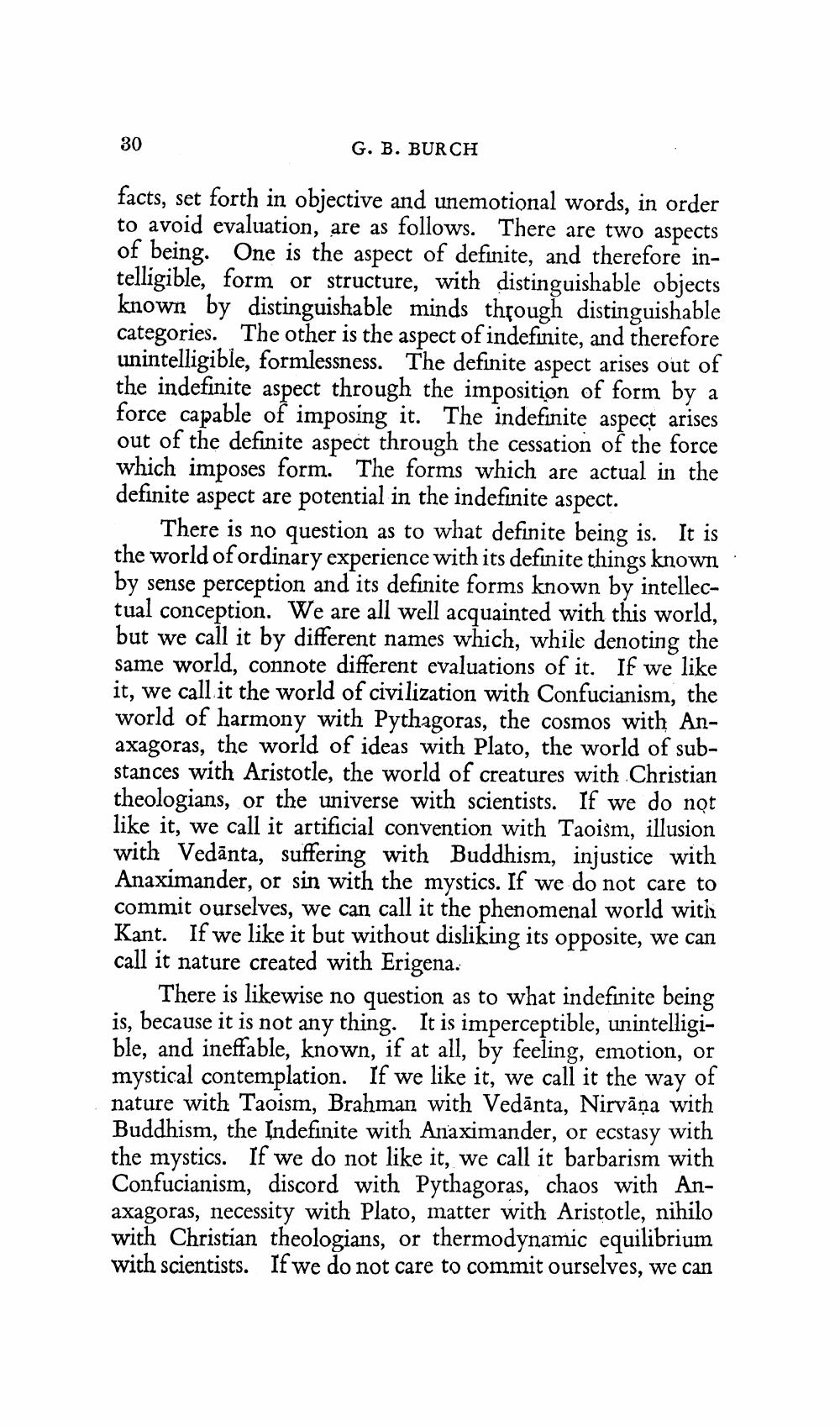Book Title: Definite And Indefinite Author(s): George Burch Publisher: George Burch View full book textPage 6
________________ 30 G. B. BURCH facts, set forth in objective and unemotional words, in order to avoid evaluation, are as follows. There are two aspects of being. One is the aspect of definite, and therefore intelligible, form or structure, with distinguishable objects known by distinguishable minds through distinguishable categories. The other is the aspect of indefinite, and therefore unintelligible, formlessness. The definite aspect arises out of the indefinite aspect through the imposition of form by a force capable of imposing it. The indefinite aspect arises out of the definite aspect through the cessation of the force which imposes form. The forms which are actual in the definite aspect are potential in the indefinite aspect. There is no question as to what definite being is. It is the world of ordinary experience with its definite things known by sense perception and its definite forms known by intellectual conception. We are all well acquainted with this world, but we call it by different names which, while denoting the same world, connote different evaluations of it. If we like it, we call it the world of civilization with Confucianism, the world of harmony with Pythagoras, the cosmos with Anaxagoras, the world of ideas with Plato, the world of substances with Aristotle, the world of creatures with Christian theologians, or the universe with scientists. If we do not like it, we call it artificial convention with Taoism, illusion with Vedānta, suffering with Buddhism, injustice with Anaximander, or sin with the mystics. If we do not care to commit ourselves, we can call it the phenomenal world with Kant. If we like it but without disliking its opposite, we can call it nature created with Erigena. There is likewise no question as to what indefinite being is, because it is not any thing. It is imperceptible, unintelligible, and ineffable, known, if at all, by feeling, emotion, or mystical contemplation. If we like it, we call it the way of nature with Taoism, Brahman with Vedānta, Nirvāṇa with Buddhism, the Indefinite with Anaximander, or ecstasy with the mystics. If we do not like it, we call it barbarism with Confucianism, discord with Pythagoras, chaos with Anaxagoras, necessity with Plato, matter with Aristotle, nihilo with Christian theologians, or thermodynamic equilibrium with scientists. If we do not care to commit ourselves, we canPage Navigation
1 ... 4 5 6 7 8 9 10 11 12
